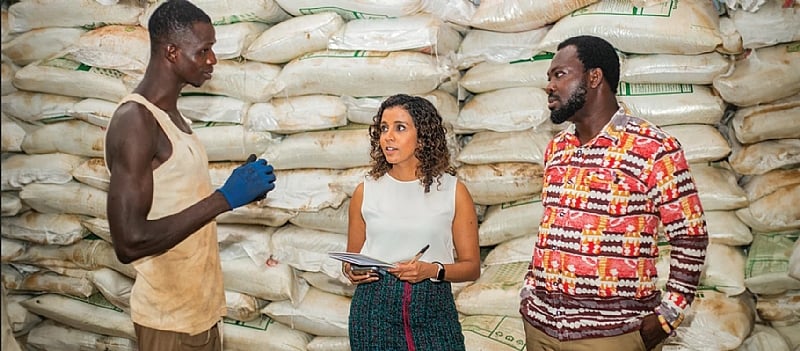Ghana’s agricultural sector, heavily reliant on smallholder farmers, has long faced challenges in efficiently distributing essential inputs like fertilizers and seeds, particularly during emergencies. Traditional methods were often plagued by delays, inefficiencies, and a lack of transparency, hindering timely support to farmers and impacting food security. However, the adoption of a digital platform, the Ghana Agriculture and Agribusiness Platform (GhAAP), has revolutionized this process, offering a model for effective and transparent input distribution.
GhAAP, developed with support from the World Bank’s West Africa Food System Resilience Program (FSRP), provides a comprehensive digital database of over 1.2 million farmers, enabling swift identification and location of beneficiaries during crises. This digital infrastructure proved crucial in Ghana’s response to multiple recent emergencies, including a macroeconomic crisis in 2022, flooding in 2023, and a severe drought in 2024. The platform’s flexibility also allowed for the rapid registration of previously unregistered farmers, ensuring that aid reached even those not initially captured in the database. In these crises, GhAAP facilitated the distribution of millions of dollars worth of agricultural inputs to hundreds of thousands of affected farmers, demonstrating its effectiveness in addressing urgent needs and bolstering agricultural resilience.
The implementation of GhAAP is underpinned by a robust registration system that leverages Ghana’s national identification card system, minimizing errors and promoting transparency. Each farmer’s identity is verified, their location georeferenced, and their photo captured during input distribution. This meticulous process not only prevents duplication and impersonation but also ensures accountability and equitable distribution of resources, directly addressing historical concerns about inputs failing to reach their intended recipients. The platform’s ability to track input distribution in real-time provides valuable data for monitoring program effectiveness and informs future interventions.
To rigorously assess the platform’s impact, the World Bank conducted an independent phone survey of over 1,500 beneficiaries. The results were overwhelmingly positive, with a significant majority of farmers confirming receipt of the expected inputs. These findings validate the effectiveness of GhAAP in ensuring that inputs actually reach the intended beneficiaries, challenging the common perception of government-led distribution programs as inefficient and prone to leakage. Furthermore, the survey highlighted areas for improvement, such as addressing instances where farmers reported making payments for supposedly free inputs, reinforcing the need for ongoing monitoring and enhanced oversight.
The success of GhAAP signifies a paradigm shift in agricultural emergency response. The platform’s digital infrastructure allows for rapid and targeted assistance, minimizing delays and ensuring that aid reaches those most in need. This not only supports immediate recovery but also strengthens long-term resilience by empowering farmers to continue production despite unforeseen challenges. By leveraging technology to streamline processes, improve transparency, and enhance accountability, GhAAP has set a new standard for input distribution.
GhAAP’s effectiveness has profound implications for food security and poverty reduction in Ghana. By ensuring timely access to crucial agricultural inputs, the platform helps farmers maintain and even increase their yields, contributing to a stable food supply and mitigating the economic impacts of crises. The transparency and accountability built into the system foster trust between government and farmers, creating a more equitable and resilient agricultural sector. The platform’s success demonstrates the transformative potential of digital technology in addressing complex development challenges and serves as a model for other countries seeking to modernize their agricultural support systems. Further development and refinement of GhAAP, based on lessons learned and ongoing evaluation, will further enhance its impact and solidify its position as a best-practice example for agricultural input distribution in emergency contexts.














